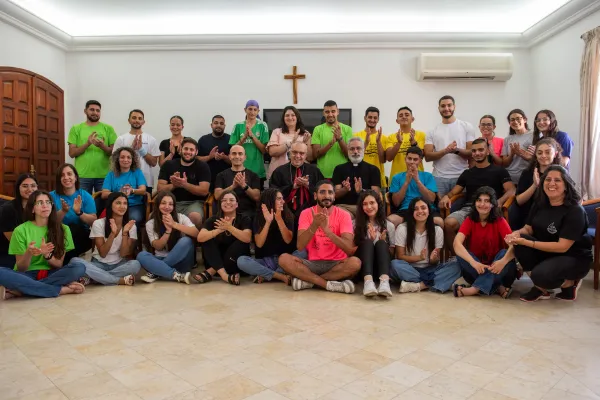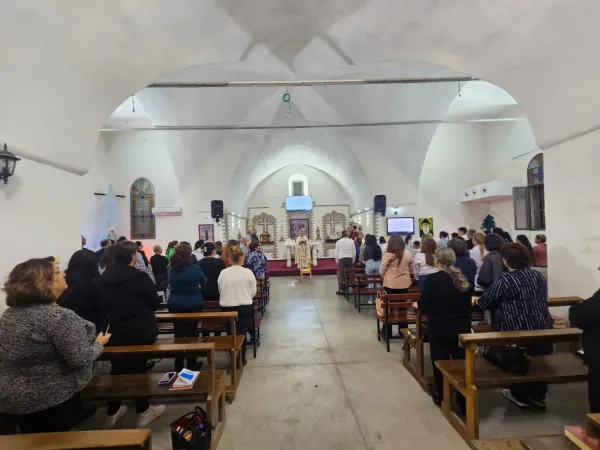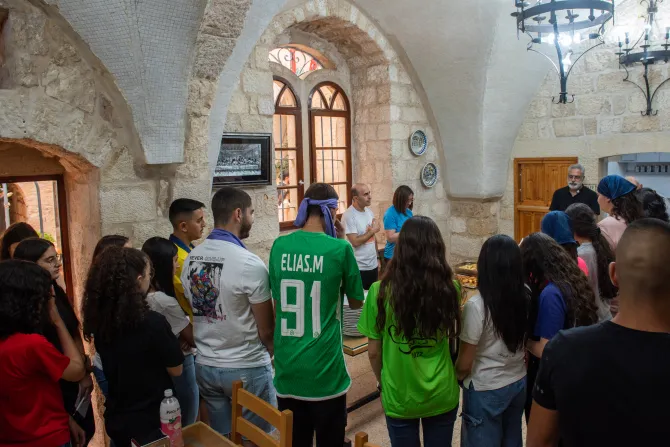On October 7, 2023, when Hamas militants attacked Israel, hostilities between Hezbollah (a Lebanese Shia Islamist political party and militant group) and Israel resumed, putting Christian communities on both sides of the Lebanon-Israel border to the test.
Kiryat Shmona and Safad in Israel, and Deir Mimas and Naqura in Lebanon are a handful of locations known for their history of fighting and violence. But they are also towns where small Christian communities live.
CNA reached out to three priests who tirelessly continue to reach these communities from both sides of the border, bringing them closeness, words of hope, and spiritual and material aid. Father Rody Noura, 37, a Maronite priest, drives every day from Acre, where he lives, to visit his parishioners — about 4,000 — in the Jewish towns of northern Israel. Like him, they are all Lebanese, having arrived in May 2000 after the Israeli army withdrew from Lebanon.
“It is possible to move around fairly safely, although sometimes you see missile explosions,” he told CNA. “When I leave, I say to the Lord: ‘Today, too, I am going out to do Your will. Whether I return home depends on You.’” Father Sandy Habib, 45, is the Maronite parish priest of Jish, an Israeli Arab village with a population of 3,000, 60-65% of whom are Christians (Maronites and Melkites). The village is located at the foot of Mount Meron, a few kilometers from the Lebanese border.
“The belief in Jesus Christ gives me the strength to continue doing what I’m doing despite difficulties,” Habib said. “The hope that Jesus Christ gives us enables me to continue living in this place. We need peace, justice, and love, and that’s possible only through Jesus Christ.”
On the Lebanon side of the border, Father Toufic Bou Mehri, 55, superior of the Franciscan convent in Tyre, is the “itinerant pastor” for the Latin Rite faithful scattered in the villages of southern Lebanon. Every Sunday he travels 70 kilometers to Deir Mimas, four kilometers from the Israeli border, opposite the town of Metulla. At 11:30, he celebrates Mass for the few remaining faithful. “We have never missed a Sunday,” he said. The situation in northern Israel “is apparently normal,” according to Noura. People work, and children go to school. But not everything is as it was before.
Many have relatives and friends on the other side of the border. Sometimes a wrong number in the phonebook can lead to accusations of collaboration with people “on the other side.” Because of this, he said, “we pray for one another, but we try to avoid direct contact.” Noura visits the sick, families in difficulty, and those evacuated from high-risk areas who are now living in hotels (about 800 people), and he teaches catechism to children.
“Only with Christ,” he said “even in the midst of war, there is hope; in the midst of death, there is resurrection.” He brings to his faithful the message of God’s love for humanity, the same love that changed his life as a teenager.




“I was 13 years old when, from one day to the next, we fled from Lebanon and came to Israel,” along with thousands of people, he told CNA. All of them were considered traitors because they belonged to the pro-Israeli militia called the South Lebanon Army, like Noura’s father, or had relations and contacts with Israelis.
“I wondered: why did all this happen to me? I’m just a child. I wanted to escape from this world; I had lost trust in everyone, even myself.” Then came an encounter with the Neocatechumenal Way, a Catholic community, and the message that “God exists and loves me as I am. It was the answer I was looking for. It restored my hope.”
For this reason, he continued, “In the face of this war, we want to choose the good, that is, Christ. Jesus said, ‘love your enemies.’ Choosing Christ is choosing love, to love everyone.” Habib, the parish priest of Jish agrees: “The key word in Christianity is love: love God and every human being, even the enemies.” This is the guiding light for him.
By Marinella Bandini



Leave A Comment